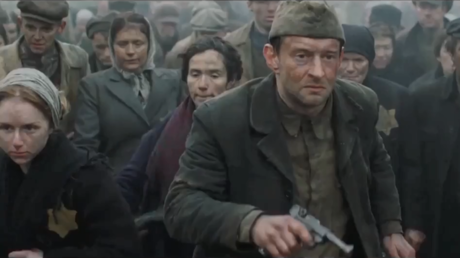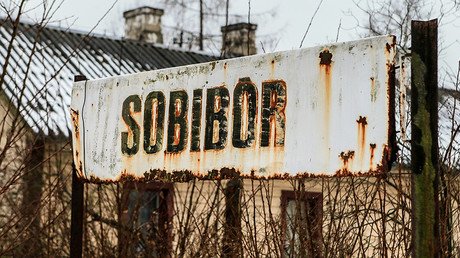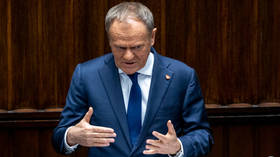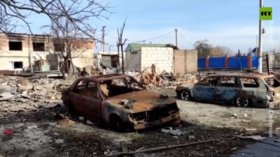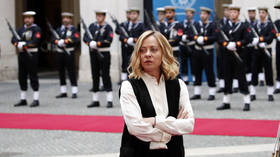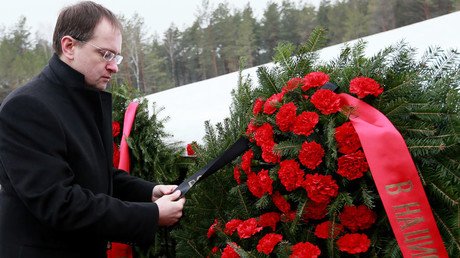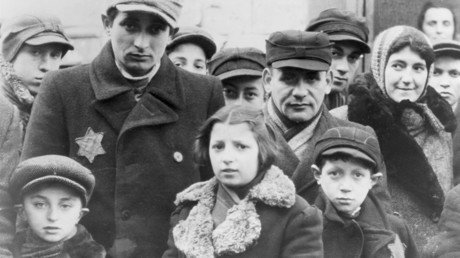'Sobibor': Poland's historical blind spot comes under fire at film premiere
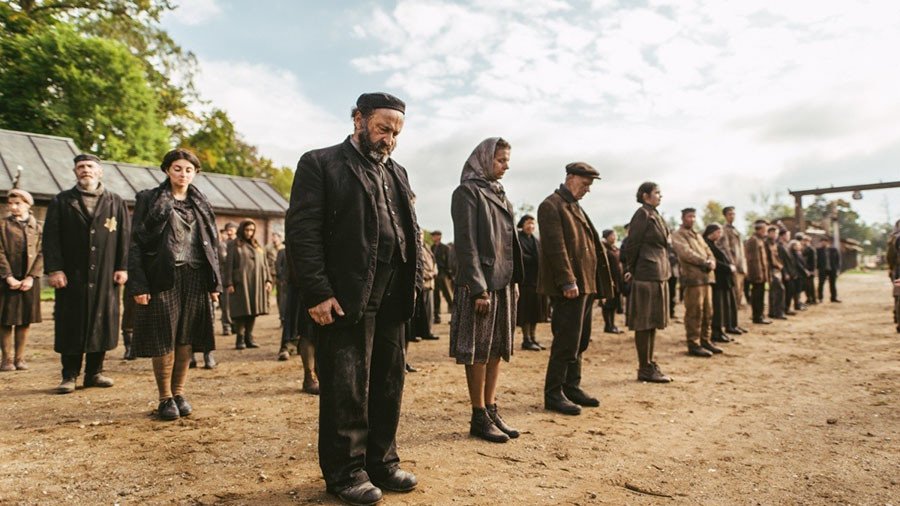
A highly-anticipated film about Soviet Lieutenant Aleksandr Pechersky – the mastermind of a successful rebellion at the Sobibor Nazi death camp – has premiered simultaneously in the Russian Parliament and in Israel's Knesset.
One of only two successful rebellions at Nazi death camps began on October 14, 1943, when a group of Jews led by Aleksandr Pechersky lured guards into sheds and stabbed them with knives. The rebels then took over the camp and helped 300 prisoners escape.
The incident remains controversial in Poland, where the government excluded Russia from taking part in the design of a new museum dedicated to the victims of Nazism – despite the fact that the hero of the uprising was Russian.
The museum, built on the grounds of the former death camp and scheduled to open to the public in 2019, does not have a sign to commemorate the hero who saved hundreds of Jews.
The international committee responsible for the decisions regarding the construction work includes representatives from Poland, Israel, the Netherlands and Slovakia. The exclusion of Russia did not go down well with Moscow.
Russian Foreign Ministry spokeswoman Maria Zakharova called it "historical amnesia," saying that Warsaw was trying to "impose its own version of history, and to lessen the role that the USSR and the Red Army played in liberating Europe during World War II."
Poland's Ministry of Culture and National Heritage explained that Russia had no role in the building process because the concept had already been approved.
"The International Steering Committee… made a unanimous decision about continuing the cooperation between its current members, who have already worked together for 10 years, in order to smoothly complete advanced works on the new memorial site," the ministry said.
Agnieszka Kowalczyk-Nowak, who is overseeing the construction work of the museum at Sobibor, explained that the reason for excluding Russia was because the committee mainly represented those Jews imprisoned at Sobibor and their countries of origin.
In a book written after the war, Aleksandr Pechersky gave a detailed account of how he planned the Sobibor rebellion. The book, which has now been included in the Russian school history curriculum, inspired the film "Sobibor."
Award-winning Russian actor Konstantin Khabensky both directed the film "Sobibor" and starred in it as Pechersky.
Focusing public attention on the story of the Soviet Lieutenant who liberated the death camp, the film was defined as "a major and important step on the way to preserving historical truth" by the Russian Ambassador to Austria, Dmitry Lyublinksy.
"The historical truth about the heroism of the Soviet people of many nationalities, who saved Europe and the whole world from Fascism at the cost of many lives, should not become a thing of the past," the ambassador said at an event in Vienna.
Making films such as ‘Sobibor’ is of utmost importance, the chairwoman of the Federation Council, Valentina Matvienko, said, as it allows “to preserve the account of the events and counter the modern Nazi whitewashers.”
“This is a very hard film, but this film allows to maintain the account of the crimes of the Nazis, allows us to remember the lessons of World War II. This film, and others of its kind, make it possible to counter the attempts to twist, rewrite the history of World War II and whitewash the Nazis and their collaborators.”
Boruch Gorin, the spokesman for the Federation of Jewish Communities of Russia, told the Times of Israel excluding Russia from designing the Sobibor museum was a "war on memory." According to Gorin, Poland is attempting to rewrite its history by refusing to admit they were liberated by the Soviets.
"Currently in Poland, they have the narrative that they weren't liberated in 1945, but they went from one occupation over to another occupation," Gorin said. Without Russian participation, he believes the accuracy of the Sobibor museum remains questionable.
